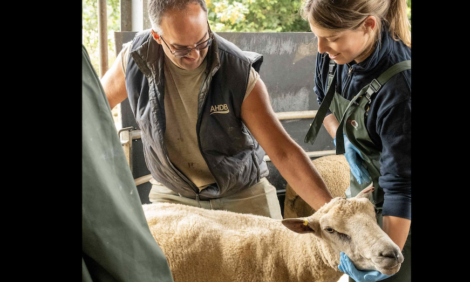



Classical Swine Fever In Germany: Revised Measures
EU - The Standing Committee on the Food Chain and Animal Health today voted in favour of a Commission proposal to ease certain measures which were put in place due to the recent outbreaks of classical swine fever in certain parts of North-Rhine Westphalia, Germany (see IP/06/459).The Decision was drafted on the basis of the stabilised disease situation in that part of Germany. There have been no new cases of classical swine fever in Germany over the past 3 weeks. Appropriate precautionary measures have been taken in the high risk areas and in contact farms. Pigs in the protection and surveillance zone have tested negative for the disease. Control measures have been applied in the framework of Directive 2001/89/EC. Holdings that received pigs from the high risk area in North Rhine Westphalia since 15 January (estimated date of virus introduction) underwent clinical or laboratory examinations with negative results.
Under the draft Decision supported today, the transport of pigs from most parts of Germany to other Member States for direct slaughter or for breeding and fattening may resume, subject to conditions. Before transport of pigs for breeding or fattening takes place, the German authorities must ensure that the pigs have been resident on a holding to which no other live pigs have been introduced for 45 days prior to dispatch. The receiving Member State must be notified of the dispatch in advance, and the animals must have undergone a thorough veterinary check.
Pigs from Köln and Detmold (territories in North-Rhine Westphalia most distant from the surveillance zone) will now be allowed to be moved to other areas within Germany for immediate slaughter or for breeding and production, subject to the same stringent conditions as above.
Within the ”Regierungs-bezirke” Arnsberg, Münster and Düsseldorf, pigs can be moved within the parts of these territories which are not within the protection and surveillance zones, and may not be dispatched to other parts of Germany or to other Member States. The same conditions for movement as outlined above will apply to these pigs.
Finally, the rules previously laid down for the transport of pigs within the surveillance zone, i.e. restricted transport only within the zone and subject to strict conditions (see IP/06/492), will now also apply to the protection zone. Stringent bio-security requirements for persons, vehicles, etc. that come into contact with pigs or pig farms in the higher risk zone of North-Rhine Westphalia, defined by the German authorities, will continue to apply . Vehicles which are used to transport pigs from and to the territory Germany need to be cleaned and disinfected thoroughly.
Vehicles used to transport pigs in the established risk zones may not be used outside that area unless thoroughly disinfected and kept out of contact with pigs or pig holdings for a minimum of 3 days. Those measures will now be adopted by the Commission next week and are applicable until 15 May. The disease situation and the measures in place will be reviewed again by the Standing Committee in the coming weeks, at the latest at the meeting of 3-4/05/06.
For more information, please visit our Swine Fever page
ThePigSite News Desk






